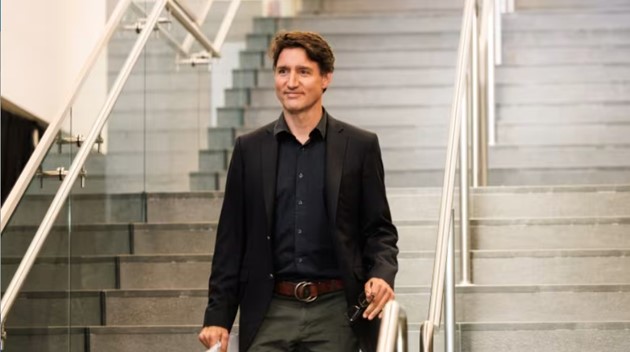
Speaking at a federal cabinet retreat in Halifax, Trudeau revealed that a 100% surtax will be applied to all Chinese-made EVs starting October 1. This move is intended to "level the playing field for Canadian workers" and bolster Canada's emerging EV industry, enabling it to compete domestically, across North America, and globally.
The new tariff, which effectively doubles the price of imported Chinese vehicles, will apply to electric and certain hybrid passenger vehicles, trucks, buses, and delivery vans. Although Chinese brands like BYD currently hold a minor share of the Canadian EV market, imports from China have surged in recent years, particularly as Tesla shifted its Canadian supply chain from U.S. factories to its Shanghai plant. The tariff will also impact these Shanghai-made Teslas, potentially prompting the U.S. automaker to source vehicles for the Canadian market from its other plants in the U.S. or Europe.
In a related move, Trudeau announced a 25% surtax on imports of steel and aluminum products from China, effective October 15. This decision comes amid concerns that China is undermining global competition by flooding the market with products made under poor labor and environmental standards.
Trudeau emphasized that these measures are necessary to protect Canadian industries and workers from being displaced by Chinese products. Despite suggestions of U.S. influence, a senior Canadian government official clarified that these tariffs were the result of months of independent study by the Canadian government, predating the U.S. announcement in May.
Deputy Prime Minister Chrystia Freeland underscored the importance of safeguarding Canada's substantial investments in domestic EV manufacturing, which include significant projects like the Stellantis facility in Windsor, Ontario, and a Volkswagen factory near London, Ontario. Freeland criticized China's strategy of overcapacity and oversupply, stating that Canada will not allow its industries to be undermined.
The tariffs have been welcomed by industry leaders like Flavio Volpe, president of the Automotive Parts Manufacturers' Association, who praised the government for protecting the Canadian automotive sector. However, the decision may face opposition from climate change advocates who argue that the tariffs could hinder the transition to a carbon-free future by making EVs more expensive.
In response to these concerns, Volpe and Freeland pointed out that Chinese-made EVs, produced in factories powered by coal-fired plants, do not meet the same environmental standards as those manufactured elsewhere. Freeland further asserted that Canada's EV revolution will not be built on the exploitation of workers or environmental degradation in China, reiterating the government's commitment to high labor and environmental standards in the transition to zero-emission vehicles by 2035.